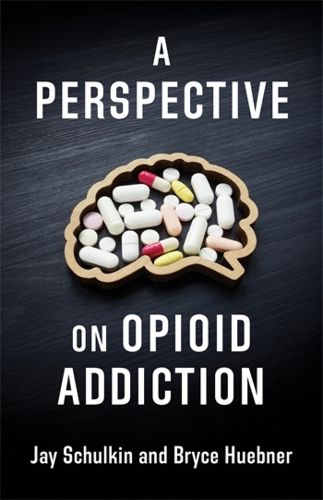Readings Newsletter
Become a Readings Member to make your shopping experience even easier.
Sign in or sign up for free!
You’re not far away from qualifying for FREE standard shipping within Australia
You’ve qualified for FREE standard shipping within Australia
The cart is loading…






Today, the opioid crisis often feels intractable. This book offers a wider perspective on its underlying causes, examining the biological, psychological, and social aspects of addiction and the interactions among them.
Jay Schulkin, a behavioral neuroscientist, and Bryce Huebner, a philosopher, explore the complexities of opioid addiction through a distinctive combination of neuroscientific knowledge and pragmatist thought. They detail the biological and neurological processes that shape and sustain addiction, showing why opiates' power to ease pain makes us vulnerable to abusing them. The book discusses the relationship between addiction and depression, the dilemmas of pain management, and the meaning of recovery. Schulkin and Huebner underscore the stigma that marginalizes people who struggle with addiction and the social factors that shape access to treatment and care, calling for a focus on harm reduction. They consider questions of individual and social accountability, reflecting on choice, autonomy, and freedom.
Interdisciplinary and wide-ranging, this book brings deep learning, empathy, and insight to understanding the experience of addiction.
$9.00 standard shipping within Australia
FREE standard shipping within Australia for orders over $100.00
Express & International shipping calculated at checkout
Today, the opioid crisis often feels intractable. This book offers a wider perspective on its underlying causes, examining the biological, psychological, and social aspects of addiction and the interactions among them.
Jay Schulkin, a behavioral neuroscientist, and Bryce Huebner, a philosopher, explore the complexities of opioid addiction through a distinctive combination of neuroscientific knowledge and pragmatist thought. They detail the biological and neurological processes that shape and sustain addiction, showing why opiates' power to ease pain makes us vulnerable to abusing them. The book discusses the relationship between addiction and depression, the dilemmas of pain management, and the meaning of recovery. Schulkin and Huebner underscore the stigma that marginalizes people who struggle with addiction and the social factors that shape access to treatment and care, calling for a focus on harm reduction. They consider questions of individual and social accountability, reflecting on choice, autonomy, and freedom.
Interdisciplinary and wide-ranging, this book brings deep learning, empathy, and insight to understanding the experience of addiction.